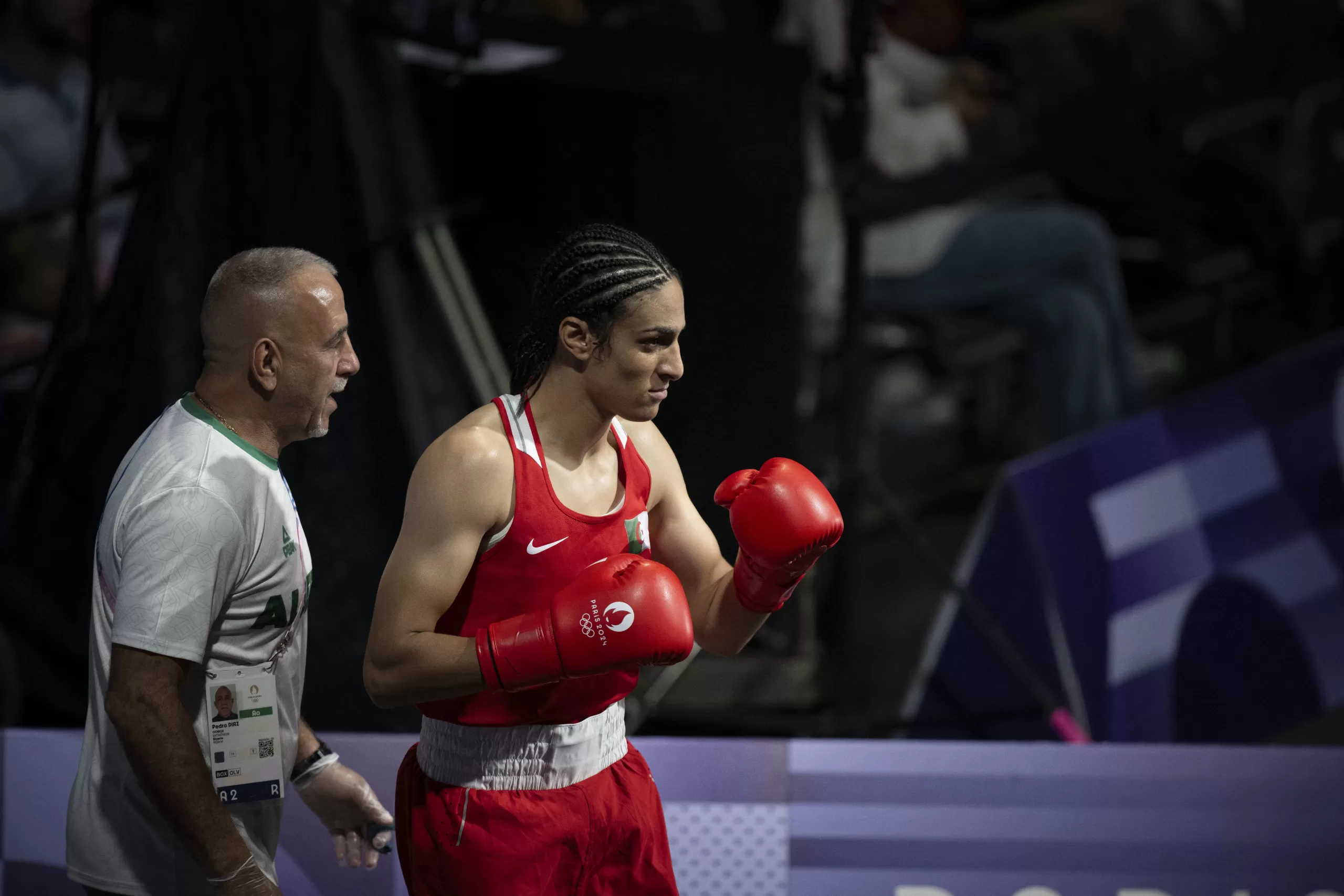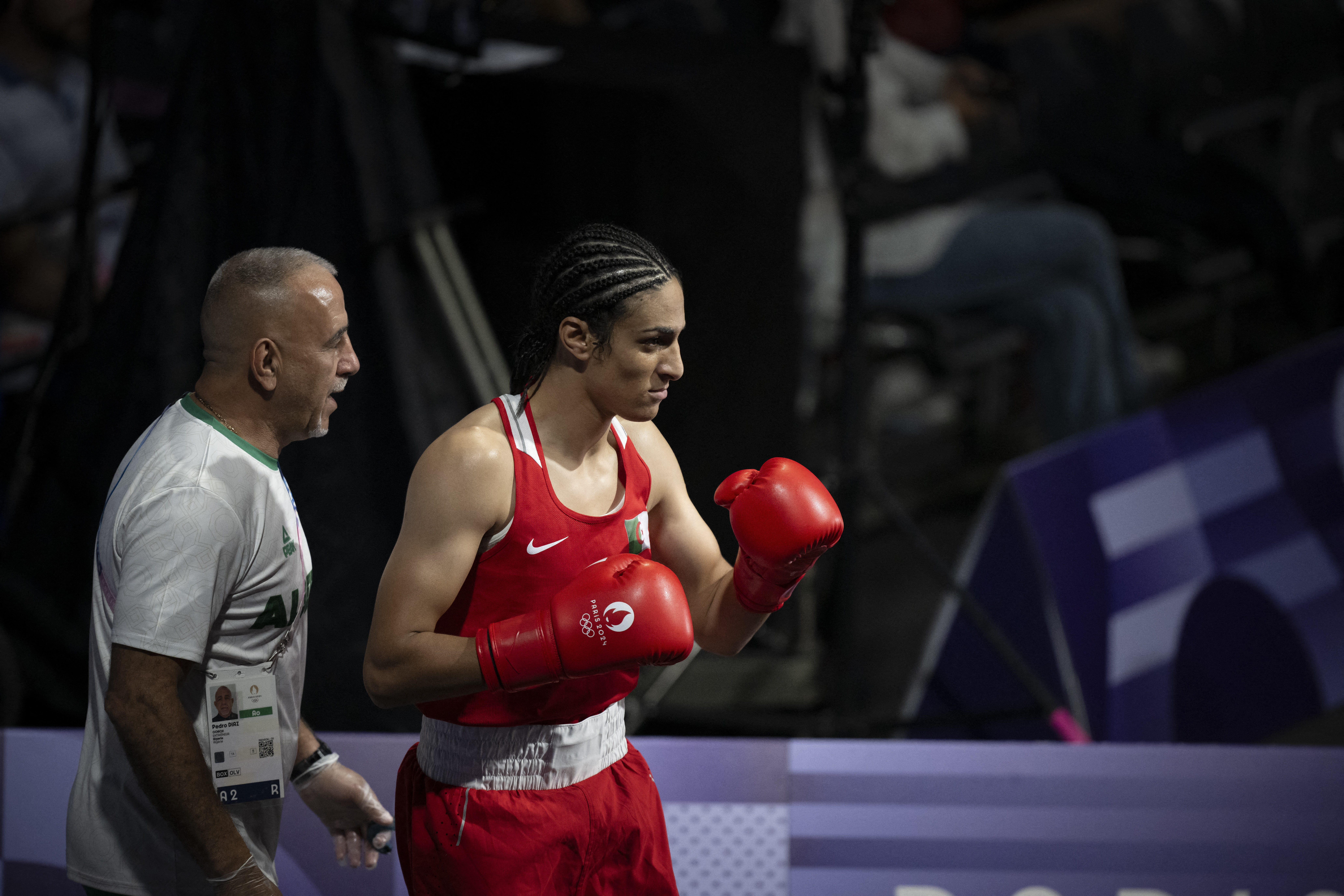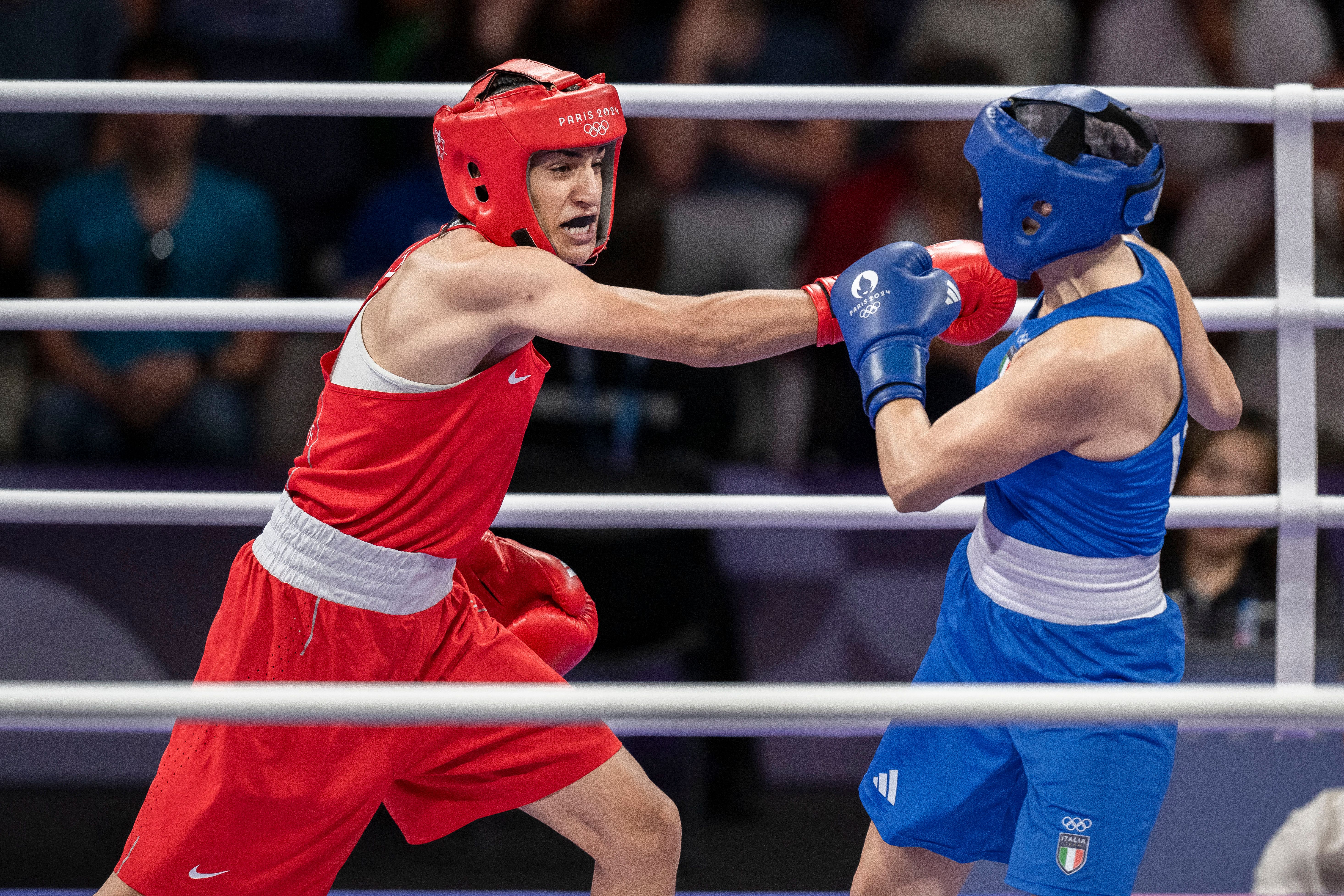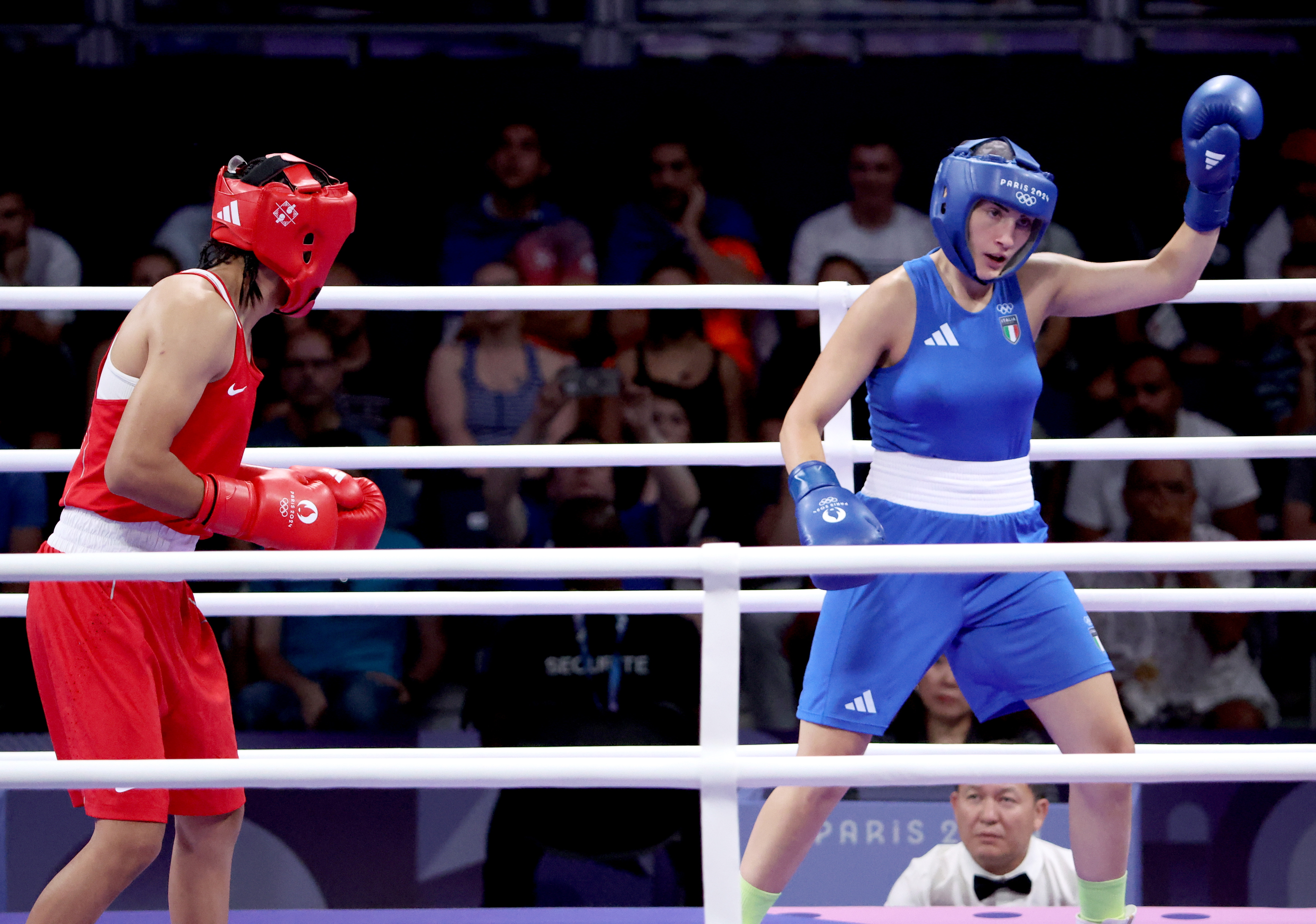IF they handed out Olympic medals for sound common sense, Italy’s Angela Carini would have won gold in the boxing ring in Paris yesterday.
The 25-year-old welterweight’s opponent was Algerian Imane Khelif, who was disqualified from last year’s New Delhi World Championship for failing to meet the necessary gender eligibility criteria.
In other words, Khelif had failed the sex test — and that meant her punches were more like a man’s than a woman’s, which made her extremely dangerous to female fighters.
So it would have been no surprise to boxers — amateur or professional — when the Naples fighter walked out of her contest after just 46 seconds, the first time she was hit hard in the face.
Carini said: “I didn’t want to fight any more, it hurt so much.”
Her coach added: “She felt pain in her nose.”
I’m sure elite fighters like Oleksandr Usyk, Tyson Fury and Anthony Joshua will applaud Carini for walking out the way she did.
She exposed the IOC for the politically correct idiots they are.
After winning the contest, Khelif said: “God willing, this was the first victory.
“God is willing me to the golden one.” Khelif later added: “Difficult for a first fight.
Olympics gender controversy
THE International Olympic Committee (IOC) stirred up a huge controversy by clearing two women to box who had previously failed a gender test.
Algeria’s Imane Khelif and Taiwan’s Lin Yu-ting were disqualified at the Women’s World Championships in New Delhi, India, in March 2023.
Lin Yu-ting was stripped of a bronze medal after failing a gender eligibility test.
Khelif was disqualified in New Delhi for failing a testosterone level test.
Officials found tests showed they had ‘XY chromosomes’ — which indicates a person is biologically male.
Rare ‘intersex’ medical conditions, medically known as differences in sexual development (DSDs), can also mean outwardly female individuals can have ‘male’ chromosomes, or vice versa.
The Russia-led International Boxing Association organised that event but is no longer recognised by the IOC.
IOC spokesman Mark Adams said: “These athletes have competed many times before for many years, they haven’t just suddenly arrived – they competed in Tokyo.
“The federation needs to make the rules to make sure that there is fairness but at the same time there is the ability for everyone to take part that wants to. That is a difficult balance.
“In the end the experts for each sport are the people who work in that. If there is a big advantage that clearly is not acceptable, but that needs to be a decision made at that level.”
Both Khelif and Lin competed at the delayed Olympic Games in Tokyo in 2021. Lin is a two-time winner at the Asian Women Amateur Boxing Championships.
The IOC said all boxers in Paris “comply with the competition’s eligibility and entry regulations”.
The controversy follows the famous case of Caster Semenya.
South African middle-distance runner Semenya has a condition which means her body naturally produces higher levels of testosterone than normal for women.
She won gold in the 800m at London 2012 and Rio in 2016 but was unable to compete at Tokyo in 2021 after World Athletics brought in new rules independently of the IOC at the time.
“Inshallah [if Allah wills it]) for the second fight. I am very prepared because it’s been eight years of preparation.
“It’s my second Olympic Games after fifth place at Tokyo. ‘I need an Olympic medal here in Paris.
“We will see who will win the second fight to know who will be the opponent.
“We will be ready and we will do everything to bring back a medal for Algeria. One, two, three, viva Algeria.”



